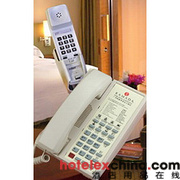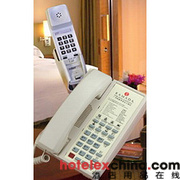As several markets in the Middle East tackle supply growth and stagnant average daily rate, sources said there is real concern that online travel agencies will take the bull by the horns and grab a larger share of profits.
Brands need to hunker down even further to come up with the right solutions, sources added while speaking at the Gulf & Indian Ocean Hotel Investors’ Summit.
At a panel titled “Coping with downturns and disruptors: Do the brands have the answers?” hoteliers complained that real change in the industry remains glacial.
“Everyday (hotel-industry) changes should be ingrained in all of us,” said Suchad Chiaranussati, chairman of SC Capital Partners. “You can only embrace change if you understand it, or your cheese will be taken away from you by someone else.”
He said online travel agencies can be that unknown, adding “that is the disruption I am concerned about.”
“Owners would love to see increased net revenue minus commissions,” Chiaranussati said. “All these arguments have been said before. Let’s do something.”
Olivier Chavy, CEO and president of Mövenpick Hotels & Resorts, agreed.
“We could happily live with lower (revenue per available room) if it means higher revenue,” he said.
Harry R.S. Johnson, chairman of investment, development and asset-management firm Beaufort Global Partners, said the Middle East’s maturing market is starting to have the same concerns of more established hotel markets.
“In (the hotel) industry, there might be said to be a climate of victimization … if (disruptors) have started to encroach, they will continue to do so … unless you do something about it,” Johnson said.
A certain degree of risk is required, Johnson said.
“Your cash flows are weakening, and with that cap rates will move,” he said. “Added to that, the management agreement now is 30 years old and needs updating.”
One audience member Norbert Vas, VP of business development at management company Archipelago International, said hotel marketing has not changed over that same span of years.
“There still are seven sales managers running around going to trade shows they do not need to go to any more because they like to travel,” Vas said. “And brands need to rethink their management charges.”
Brands of the Stone Age
Chavy agreed the industry has a real challenge when it comes to looking at the industry with new eyes.
“We are in the age of stone,” he said. “Ask yourself, did Netflix kill Blockbuster, or did Blockbuster do that themselves with silly late fees and other rules?”
Carmen Hui, global commercial director of owner partnerships at Booking.com, said portions of the hotel industry are out of touch with the current state of distribution.
“Management contracts and legacy models never envisaged OTAs would come into the picture,” Hui said.
She noted hotels do get benefits from working with OTAs.
“Yes, (OTA) commission rates are high compared with what you paid in the past, mostly offline, and we are disruptors,” she said. “Let’s get that on the table, but look at what you get … customer service.”
Hui said consumers care about customer service, and OTA-employed “connectivity experts” are working diligently on improving ease of booking and relationships between the two sides.
“I had no idea what connectivity was when (I left Host Hotels & Resorts)—or performance marketing,” she said. “Most of this spend goes to Google … these are all things traditional (hotel) teams I am guessing do not have in their firms.”
Middle East down, OTAs up
Chiaranussati said brands could lead the opposition, but they need to work more closely with owners and operators.
“For owners and management companies there is room now to do something about this,” he said. “It would be very arrogant for brands to say they control revenue.”
Chavy said hotels that use data initiatives to predict guest behavior a game-changer.
“What data do owners have? Is it possible to make predictive moves without this data?” Chavy asked.
Without this, Johnson said it’s difficult for hotel owners to understand their guests.
“As an owner, you have no more decision-making power,” he said. “Do most owners even know their own customers?”
But Hui said OTAs can help hotels better understand their guests.
“Get analytics from OTAs,” she said. “This is the data owners can use. At Host, we never owned the customer, we had intermediaries. Get out there and get this information, and you will not feel so depressed.
“Engage with your customers, that is all.”
But the hoteliers on the panel pleaded for change.
“The revenue structure of brand management is utterly obsolete,” Chiaranussati said. “Do not be a dinosaur. If someone comes along with a good idea, listen … support it, even if it is a new form of OTA. My real concern is the inactivity of owners.”
Hui said the OTA landscape could change overnight.
“What keeps us up at night, every night, is the fear of being disrupted ourselves,” she said. “There has been much speculation as to whether one OTA will create their own hotel brand.”










Service Hotline
Work Time:Mon-Fri 9:00-18:00
UTC+8

Sinoexpo Digital Platform
Copyright 2006-2024 Shanghai Sinoexpo Informa Markets International Exhibition Co., Ltd. All rights reserved
沪ICP备05034851号-77
 沪公网安备 31010402000543号
沪公网安备 31010402000543号